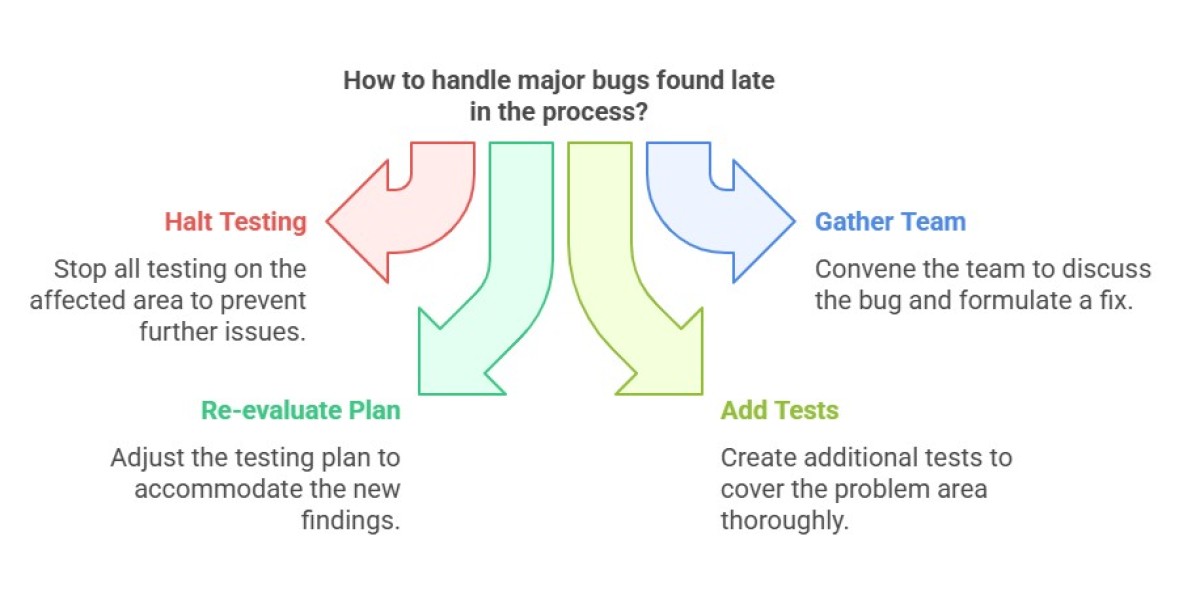Landing a Test Manager role is a fantastic achievement! It means you're ready to lead a team and ensure top-notch quality for products and services. But, like any important job, prepping for the interview is key. This article will walk you through some common Test Manager interview questions and provide clear, simple answers to help you shine.
Remember, the interviewer wants to see not just what you know, but how you think and communicate. So, focus on explaining your reasoning and approach clearly.
Here are some frequent questions you might encounter:
What are the responsibilities of a Test Manager? A Test Manager is like the conductor of an orchestra. They plan, organize, and direct the testing process. This includes:
- Creating test plans.
- Managing the testing team.
- Tracking progress.
- Making sure everything is tested thoroughly.
- Communicating results to the team and stakeholders.
How do you handle it when testers find major bugs late in the process? When big problems are found late, it’s important to act quickly and efficiently. My approach would be:
- Stop the presses! Halt testing on that part of the project.
- Gather the team. Discuss the issue and how to fix it.
- Re-evaluate the plan. Adjust the testing plan if needed.
- Add more tests. If necessary, create new tests to cover the problem area.
- Keep everyone informed. Communicate the situation and progress to all involved.
What is a Requirement Traceability Matrix? Imagine a map that connects every single requirement to the tests that check it. That's a Requirement Traceability Matrix! It helps make sure nothing gets missed and that all requirements are tested.
How do you choose a testing tool? Picking the right tool is like choosing the right instrument for a musician. You need to consider:
- What the project needs.
- What tools are available.
- How much they cost.
- Which tool is the best fit for the team.
What are some common challenges in testing projects? Testing isn't always easy. Some common hurdles include:
- Time constraints.
- Communication issues.
- Keeping up with changes.
- Testing everything thoroughly.
What is a Test Plan? A Test Plan is like a blueprint for testing. It outlines what will be tested, how it will be tested, and who will do it.
What qualities make a good Test Manager? A great Test Manager needs a mix of technical skills and people skills. This includes:
- Clear communication.
- Good teamwork.
- Strong problem-solving abilities.
- Leadership skills to motivate the team.
What is Configuration Management? Configuration Management is about keeping track of all the different parts of a project, like code, documents, and test results. It helps ensure everything is organized and under control.
What is the PDCA model? PDCA stands for Plan-Do-Check-Act. It's a way to improve processes. You plan what you want to do, do it, check the results, and then act based on what you learned.
What are casual reviews? Casual reviews are like quick checks to find problems early. They are informal and don't usually involve detailed reports.
What are some risks in a testing project? Risks are things that could go wrong. In testing, this might include:
- Not having enough time.
- Team members lacking skills.
- Changes to the project.
How do Test Managers measure a project? Test Managers keep track of things like:
- Cost.
- Resources.
- Time.
What is a three-point estimate? A three-point estimate is a way to estimate how long a task will take. You come up with three estimates: the best case, the most likely case, and the worst case.
What should a good test report include? A good test report should be clear and concise. It should include:
- What was tested.
- What the results were.
- Any problems that were found.
What are some software quality assurance best practices? Some best practices include:
- Testing early and often.
- Using the right tools.
- Communicating effectively.
- Continuously improving the testing process.
How do you measure the quality of test execution? This can be done by looking at:
- How many bugs were found.
- How many bugs were missed.
How do you handle team conflicts? Conflicts are normal in any team. The key is to:
- Address them quickly.
- Listen to everyone involved.
- Find a solution that works for everyone.
What do you expect from this job? Be honest and enthusiastic. Talk about what excites you about the role and how your skills and experience align with the company's needs.
Have you managed a team of testers before? If yes, share specific examples of how you led and motivated your team.
What’s your opinion on test leads writing test cases? A good answer is that everyone on the team, including the test lead, should contribute to writing test cases.
How do you set your team’s goals? Set goals that are specific, measurable, achievable, relevant, and time-bound (SMART). Tailor goals to each team member's skills and experience.
How comfortable are you with industry standard testing practices? Demonstrate your knowledge of various testing methodologies and best practices.
How do you ensure your team members receive proper training? Regularly assess training needs and provide opportunities for skill development.
What are your criteria for hiring team members? Look for a combination of technical skills, attitude, and team fit.
Which testing tools are you familiar with? Mention specific tools you've used and explain how they've benefited your projects.
Are you familiar with automation, and what are your thoughts on it? Express a positive view on automation and highlight its importance in modern software testing.
What is a Requirement Traceability Matrix? What are its uses? (Repeated question, but important!) Again, it's a map linking requirements to tests, ensuring full coverage.
What risks should be avoided in a testing project? (Repeated question, but important!) Time constraints, skill gaps, communication breakdowns, and scope creep are all risks to watch out for.
What good practices do you follow? Focus on documentation, quality standards, team recognition, and continuous learning.
Have you been involved in test estimation? What methods do you use? Explain your experience with estimation techniques like three-point estimation and work breakdown structure.
What are your key accomplishments in your current organization? Highlight achievements that demonstrate your skills and impact.
What is the difference between Agile and Scrum? Which do you prefer? Agile is a philosophy, Scrum is a framework within Agile. Discuss your experience with both and why you might prefer one in certain situations.
What is Configuration Management? (Repeated question, but important!) Keeping track of project components.
What are casual reviews? Do you report casual reviews? (Repeated question, but important!) Informal checks, usually not formally reported.
What is a "three-point estimate"? (Repeated question, but important!) Best-case, most-likely, worst-case estimates.
What are the critical challenges of software testing? (Repeated question, but important!) Testing everything, communication, regression testing, time constraints, prioritization.
What steps are followed to create test content? Understand the application, identify what to test, decide how to test.
Why is testing essential? To find bugs and ensure quality before release.
What are the critical components in a Bug Report? Clear description, steps to reproduce, expected results, actual results, severity, priority.
What is Exploratory Testing? Learning, planning, and executing tests simultaneously, often used early in a project.
What are the severity and priority of a defect? Severity is the impact on functionality, priority is the order in which it will be fixed.
How do you choose a testing tool for your project? (Repeated question, but important!) Project needs, available tools, cost-benefit analysis.
What do you believe is the best way to approach starting QA on a project? Start early!
What soft/relationship-building skills should a Test Lead/QA Manager have? Communication, teamwork, motivation, conflict resolution.









